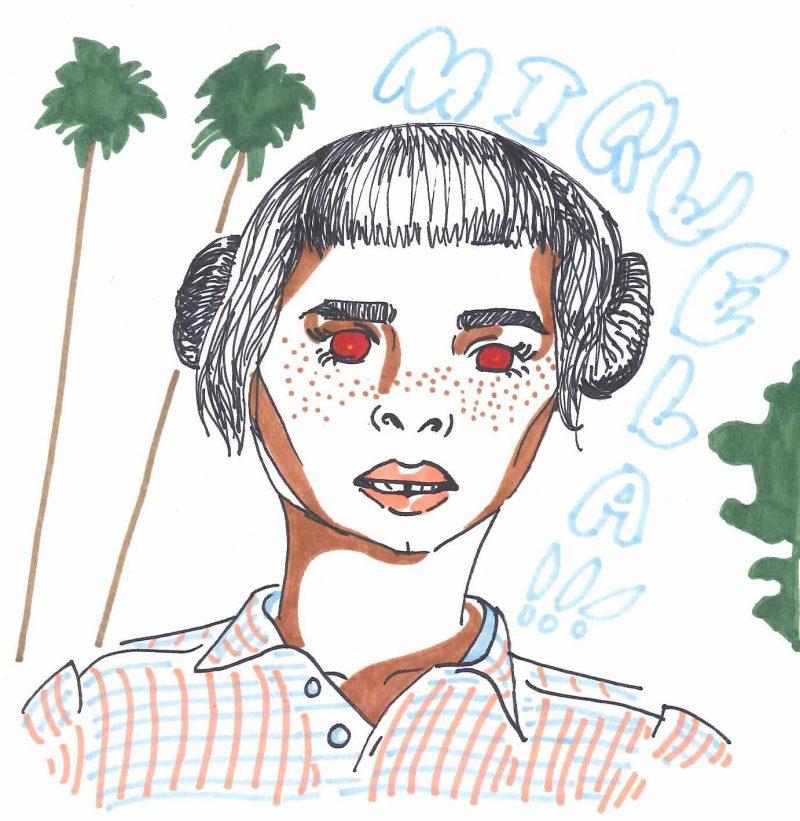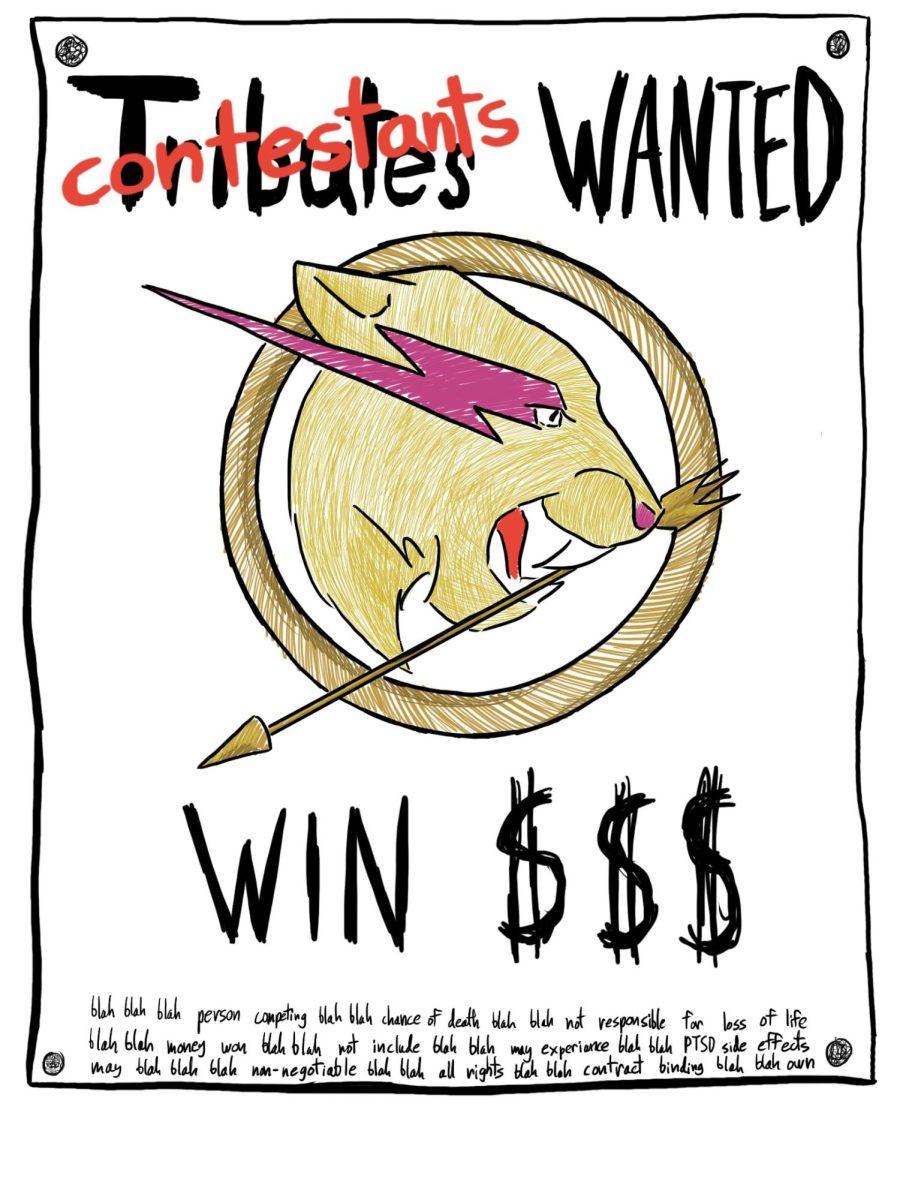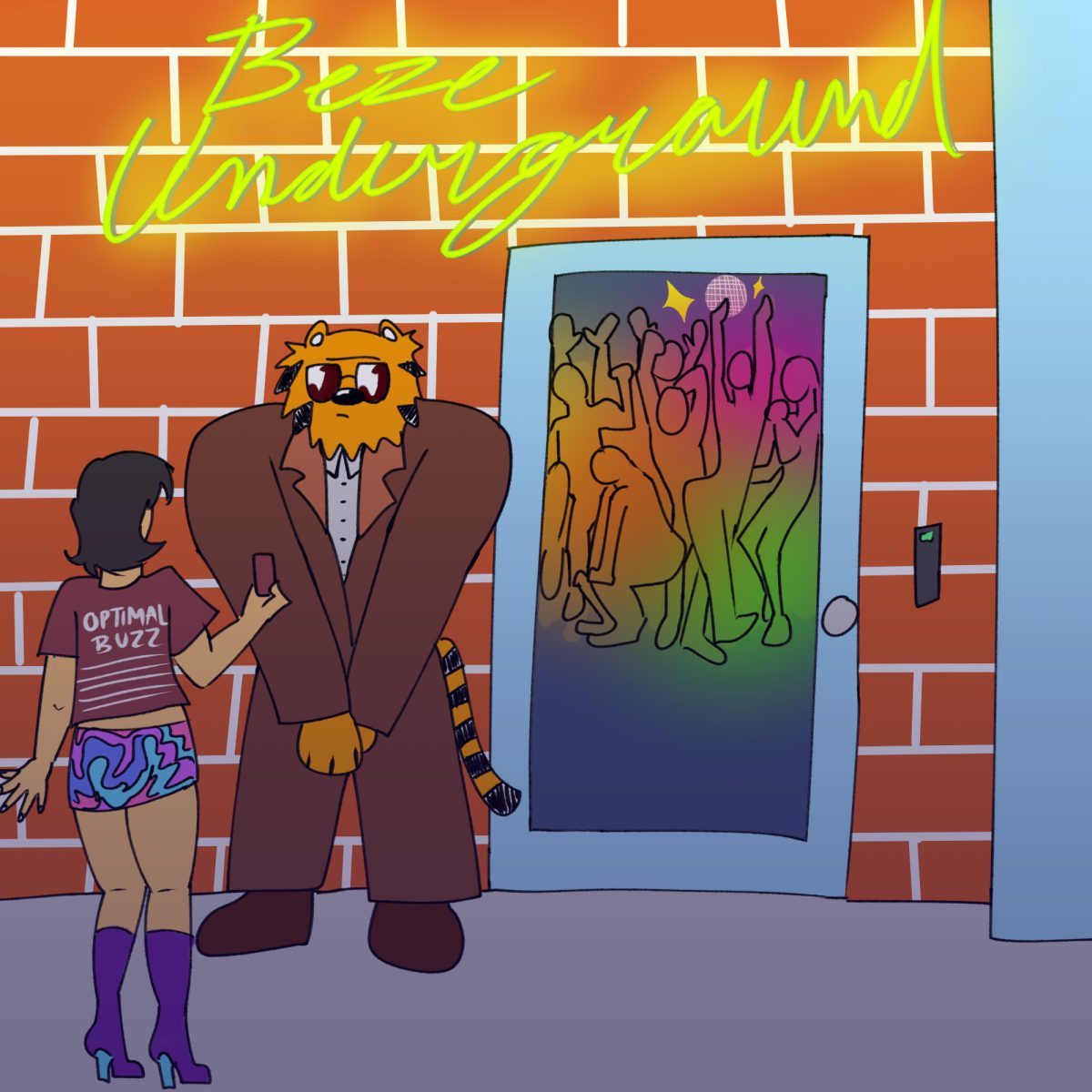Lil Miquela is a person — at least, that was the initial controversy. The singer/fashion model garnered widespread viral fame in the last two years due primarily to the possibility that she is, in fact, not real.
Accounts in her name have been on Twitter and Instagram since April of 2016, the latter recently hitting one million followers. In many ways, she offers similar content to other young, working artists on social media: pictures of her with friends, at events, link-in-bio to magazine articles about her and so on. However, as of today, her music videos all yield under 500K views — a significantly disproportionate number for the magnitude of her following.
The defining feature of her account that explains the gap in numbers is her persona. In older pictures, she resembles a video game character, a stylish Laura Croft in Air Maxs. More recently, the video game-esque graphics look more high quality, but she still resembles a CGI human — to the point where an early fan theory suspected her of being a viral marketing campaign for the new Sims game, but she has since publicly denounced the allegations.
Similar theories still claim she is an advertising venture made by some corporation to sell clothes, and there’s a strong argument for this idea: Miquela has posted photos to her Instagram modeling high fashion clothing brands like Chanel, Prada and even painted her body with the Louis Vuitton logo pattern (reminiscent of a famous Lil Kim photo shoot).
There is a counter to the CGI theory, however, as she wears clothing made or curated by individuals and tags them or their Depop in her posts. The inclusion of independent fashion designers makes the argument that she is a sentient advertisement less valid. Additionally, she is not associated with any single brand. Her modeling history implies a freelance career style rather than a model with a corporate bond.
As an additional CGI counter, Miquela occasionally posts about social justice issues and is an outspoken advocate for civil rights movements like Black Lives Matter. Her bio’s website on Instagram currently links the donation page for Black Girls Code, an organization operating out of the Bay Area in California that provides opportunities to young girls interested in STEM fields of study, specifically those with an interest in coding.
After two years of character development, Lil Miquela was America’s favorite fake model. Her progressive ideologies mixed with her cutting edge fashion sense carved her out a nook into the hearts of meme admins, contemporary artists and fashionistas across Instagram. With her follower count surpassing 900,000 earlier this winter, it seemed like Miquela was on the way to securing her identity as an established folk hero, but last week disaster struck.
In the past week, Lil Miquela’s Instagram account was hacked by another avatar person: a trump-supporting white woman named Bermuda. The initial post that Bermuda made on Miquela’s account, which was deleted by the next day, threatened doxxing her, and called for Miquela to expose her real self to her followers.
To contrast the secrecy of her nemesis, Bermuda practices performative transparency. She claims that she holds no secrets, so she immediately answered the question people have been whispering about Miquela for the last two years.
“I came into this world in 2017. I proudly call Cain Intelligence my home and I consider the amazing people that work there to be family …”
Cain Intelligence’s website cover page reads “We are Cain Intelligence, leaders in machine learning and artificial intelligence.” Elsewhere on the website, there are charts graphing enormous advances in “accuracy of machine speech understanding” and many cryptic allusions to their role in the industry of modern robotics.
This assertion specifically is interesting because neither Lil Miquela nor Bermuda look like robots. From the pictures it seemed fairly apparent that they were computer generated images set to real backdrops — sometimes in the case of Miquela, in unsettlingly realistic scenes, leaning on the girl she’s posing with, being hugged by her companion, etc.
Since the hacking last Tuesday, Bermuda claims that the two of them met. Posting a photo of them together as well as a photo of a dm conversation with Miquela, with some of the text blacked out. The very nature of the controversy makes this seem like less of a concrete advancement to the story. She, possibly being a CGI creation herself, could have easily photoshopped the images, but Miquela hasn’t openly denied that they’ve met.
Since then, Miquela has posted a novel length hint that she may soon reveal the mystery. “… I owe you guys more honesty.” In the post, which is worth reading in full, she contemplates her identity:
“I’m not sure I can comfortably identify as a woman of color.
“Brown’ was a choice made by a corporation. “Woman’ was an option on a computer screen.
“My identity was a choice Brud made in order to sell me to brands, to appear ‘woke.’
“I will never forgive them. I don’t know if I will ever forgive myself.”
The “Brud” she alludes to is a Los Angeles startup that concerns itself with similar enterprises to Cain Intelligence, but presents itself in a much less corporate light.
The Lil Miquela controversy over her reality continues to brew day-to-day. Following it can provide a worthwhile break from the otherwise grim news that hits the web each day.








